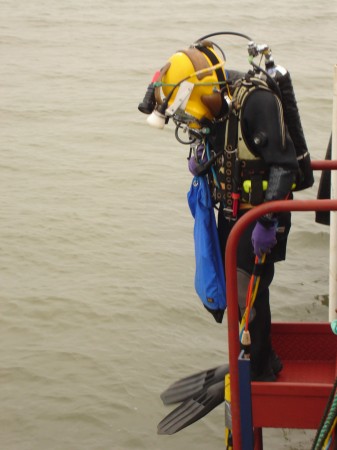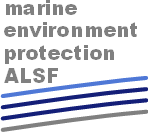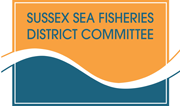Graham Scott, Wessex Archaeology
How did you get into your job?
I have worked for Wessex since 2003. I originally studied Roman and prehistoric archaeology at University and then worked as a land-based archaeologist in Britain and Germany in the 1980s. Low pay and a youthful desire for new experiences led me to become a teacher in Africa, then an English lawyer and subsequently a diver in the oil industry in the Middle East. The wide range of skills learnt doing these jobs enabled me to gain work as a maritime archaeologist.
What do you do on a day-to-day basis?
My job is very varied. In terms of time, most of my work is desk-based research. For example, recently I have been working on a major research project on the shipwrecks of Shetland and Fair Isle in Scotland and have previously worked on studies of aircraft crash sites at sea off the coast of England and the maritime archaeology of the once mighty Welsh coal industry.
I also undertake quite a lot of diving fieldwork, usually on historic ship and aircraft wrecks. Doing this I am often building on survey work already carried out by our geophysicists such as Louise Tizzard. Recent sites have included the internationally important WW2 wreck of a German Dornier bomber that crash landed on the Goodwin Sands off Kent and the London, an English warship that sank in the Thames in the 17th century as a result of an accidental explosion. The work that I undertake increases public understanding of our maritime heritage and its relevance to us today. It also helps the government to manage our use of the sea so that our activities such as the building of windfarms do as little damage as possible to that heritage. In the case of the German bomber, it is the only surviving example of one of the main aircraft types that fought in the Battle of Britain. As a result of Wessex’s work the RAF Museum is planning to recover it for future display in the new museum that they hope to build in London.
Due to my experience I undertake a lot of the diving supervision as well as diving myself. This means that I am responsible for the safety of the diving that we do. This aspect of my work carries a very high level of responsibility as any mistakes that I make could have very serious consequences.
Some of my work uses advanced technologies such as acoustic beacons for tracking the position of divers on the seabed. I have also been involved in a project using a remotely operated vehicle or ROV (a type of robot) to investigate a shipwreck that was too deep for divers.
The media is often interested in historic shipwrecks. As a result I have been interviewed for TV programs several times, most recently for a program about shipwrecks in the Thames. This is fun, although I usually seem to be interviewed as I climb out of the sea after a very tiring dive – when I am definitely not at my best!
What is your favourite part of the job?
The thrill of a new discovery and the satisfaction of a client saying “well done”.
What skills and qualifications are useful for your profession?
Anything relevant that is in short supply. Professional diving skills and qualifications are important but most of the work is desk-based and you do not have to be a diver. You are unlikely to get very far without a university qualification in archaeology and experience of working as a land-based archaeologist is always helpful. Good IT skills, particularly in geographical information systems (GIS), are also very helpful as are good observational skills, the ability to analyse information and write well and concisely. The willingness to work hard and to work outside in all conditions is definitely required!
Archaeologists are not the only people to undertake archaeological work. Archaeologists often work in teams with other specialists such as marine geophysicists.
Any other career tips?
Maritime archaeology is a small specialist branch of professional archaeology. Maritime archaeology jobs are very few and far between and they tend to be poorly paid. Whilst opportunities are now more common than when I first started, they look set to remain in short supply for the foreseeable future. There is a lot of competition for jobs and establishing a long-term career in maritime archaeology is therefore only for the most determined and the hardest working. If you are primarily motivated by pay or job security, or if you think that maritime archaeology is all about diving, then think again!
Studying archaeology is not the only way to get involved in maritime archaeology. Marine geophysicists are sometimes employed to work with archaeologists. They can usually earn more doing other work and can therefore be hard to find.
If you are interested in a career in archaeology then I would advise you to talk to working archaeologists to find out what it is like for them and then decide whether it would suit you. Getting involved as a volunteer in archaeological fieldwork before you go to university will also help you decide whether you want to follow it as a career. There are also opportunities to go on training excavations which you can find out about through contacting the Council for British Archaeology or your local archaeology society. On the maritime side you can contact the Nautical Archaeology Society. They run training schemes to teach recreational divers archaeological skills. Even if you decide not to pursue archaeology as a career, you may still be able to enjoy it as a hobby or interest.
Graham Scott
Maritime Archaeologist
Wessex Archaeology










